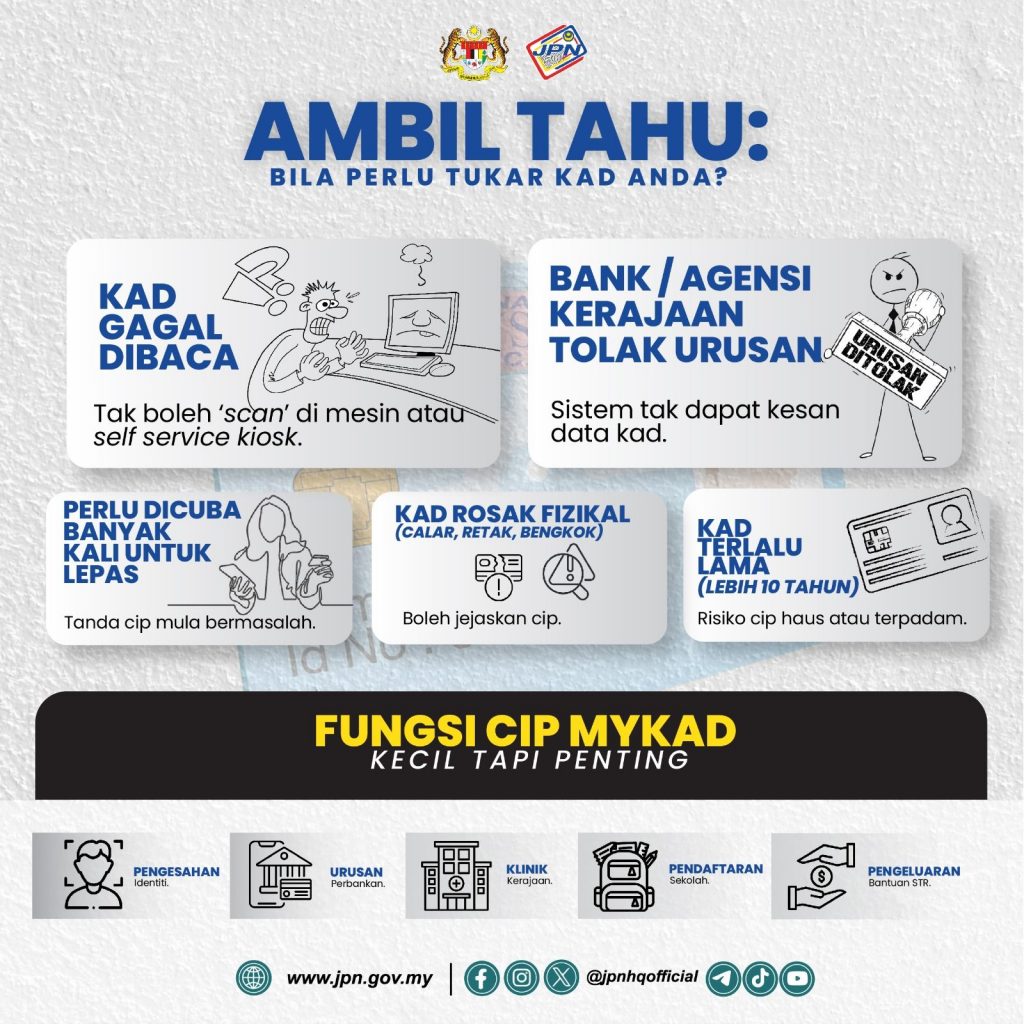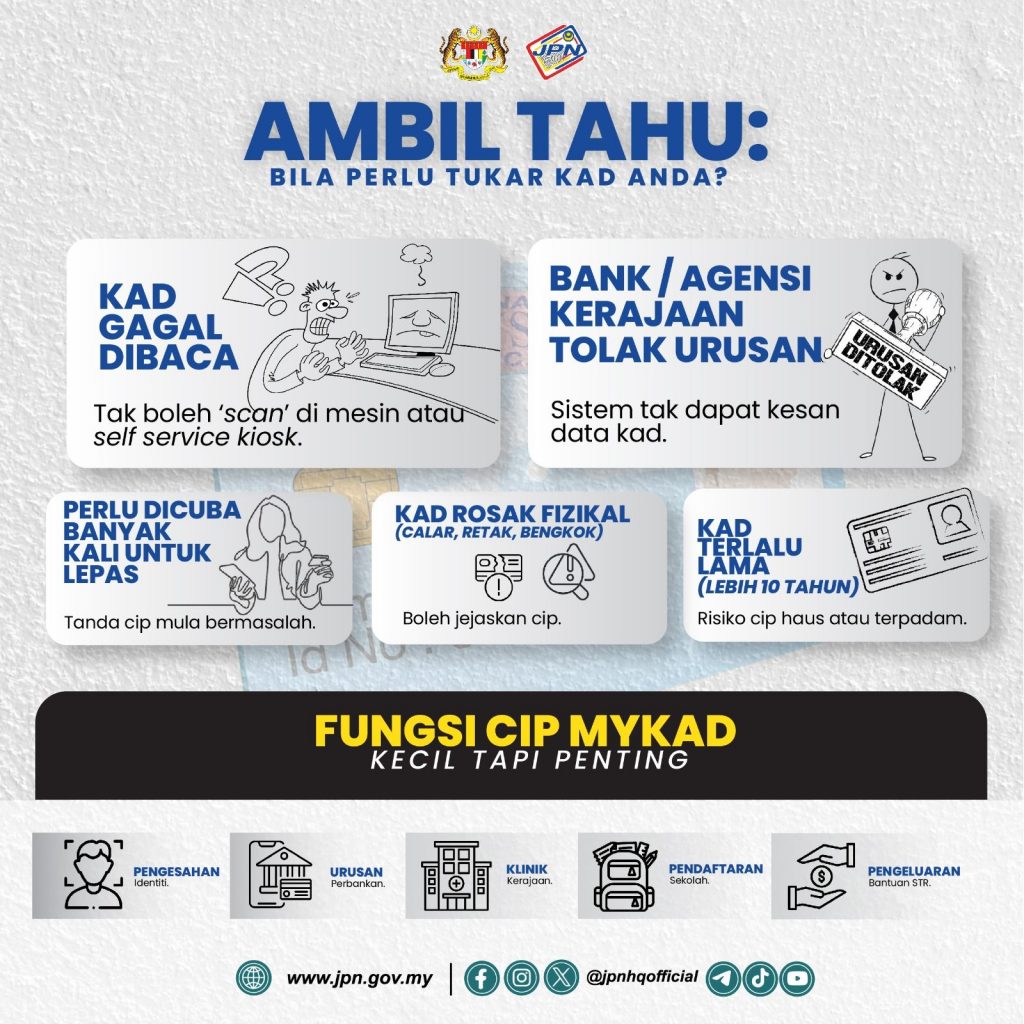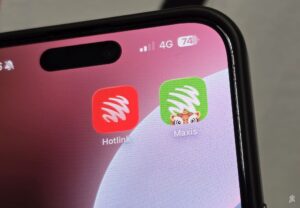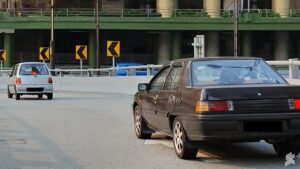In conjunction with the recent BUDI95 initiative which offers Malaysians cheaper subsidised RON95 fuel price of RM1.99/litre, the National Registration Department (JPN) has announced that it is offering free MyKad replacement for faulty chip starting tomorrow, 23rd September until 7th October 2025.
Malaysians are required to have a functioning MyKad in order to access the cheaper RM1.99/litre RON95 fuel on 30th September.
The replacement for faulty MyKad can be done at any JPN counters and offices throughout Malaysia.
Free MyKad replacement for faulty chips
According to the Ministry of Home Affairs, JPN has received 294,715 MyKad replacement under faulty/damaged card categories between January to August 2025. The trend shows an obvious increase in the past 3 months from 32,819 replacement applications in June to 40,371 in July and 45,411 in August.
In the first 21 days in September, JPN has already received 22,858 MyKad replacement requests. That’s an average of about 43,000 replacements per month for the past two months.
Therefore, the Ministry has announced that it will offer free MyKad chip replacement from 23rd September to 7th October 2025 which is expected to cost the government RM714,660 inclusive other related costs. A MyKad replacement typically costs RM10.
It added that the government is absorbing the cost to ensure all citizens can continue to access subsidies without interruption and enjoy the latest BUDI95 benefits smoothly. It urged all Malaysian citizens to ensure that their MyKad remains in good condition at all time as it not only functions as an identity document but also the key to access various services including the BUDI95 targeted subsidies.
How to replace your MyKad?

If you faced difficulty in using your MyKad for verification at the bank, government kiosks and to claim your one-off RM100 SARA initiative, it is time to replace your card. Cards that are over 10 years old are also due for a replacement.
JPN has over 210 counters nationwide and the MyKad replacement takes as little as 30 minutes at state JPN headquarters and UTC branches.






